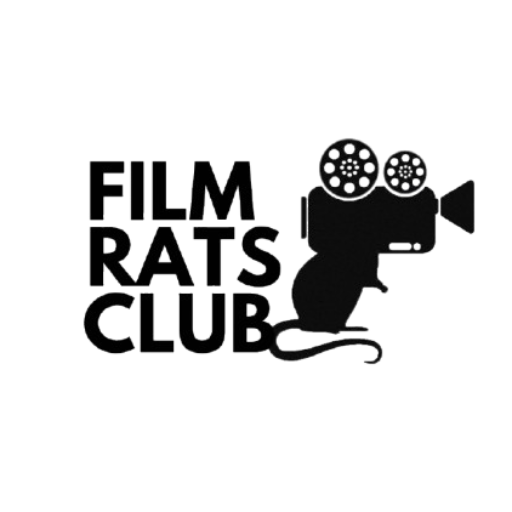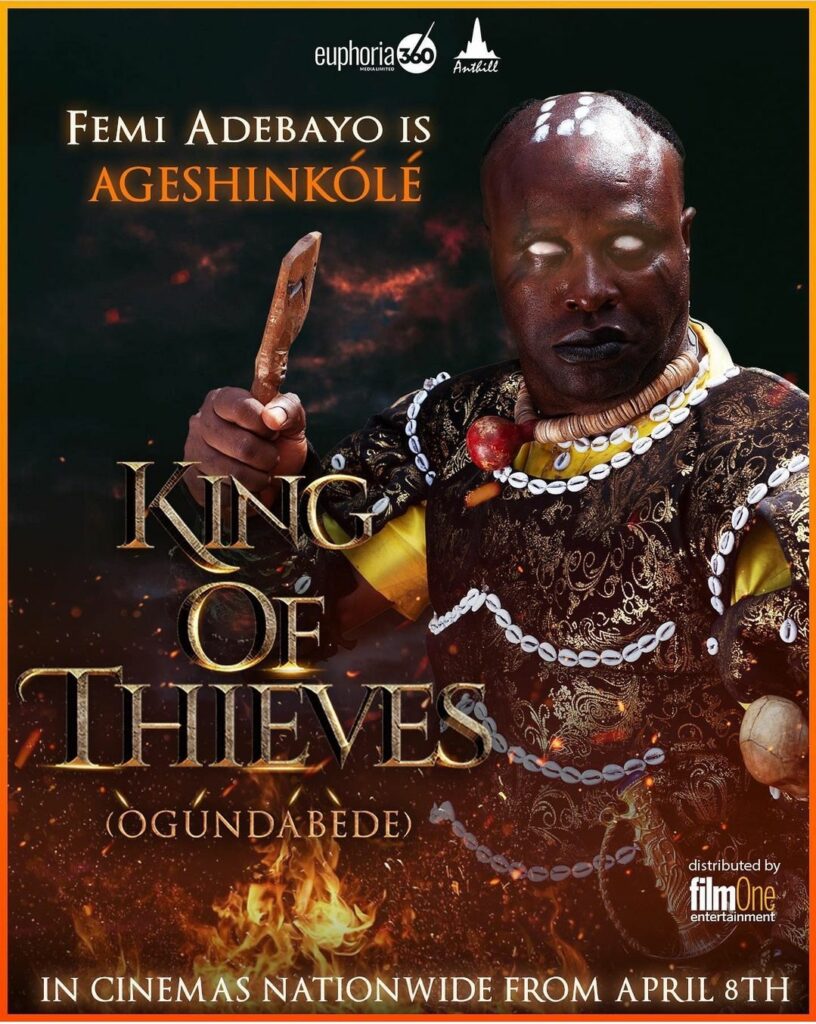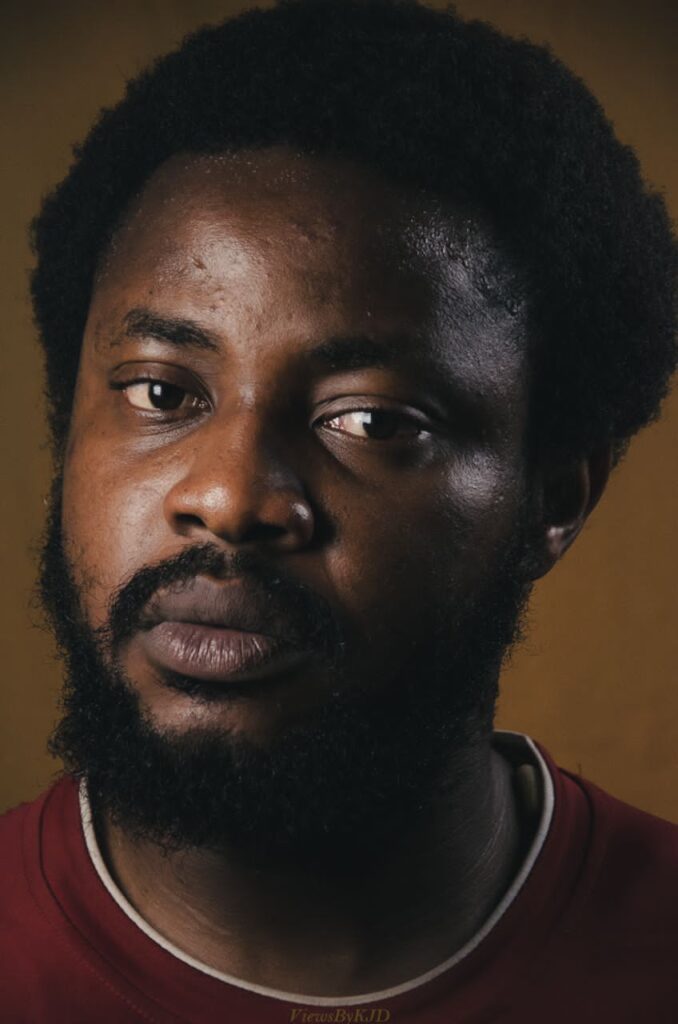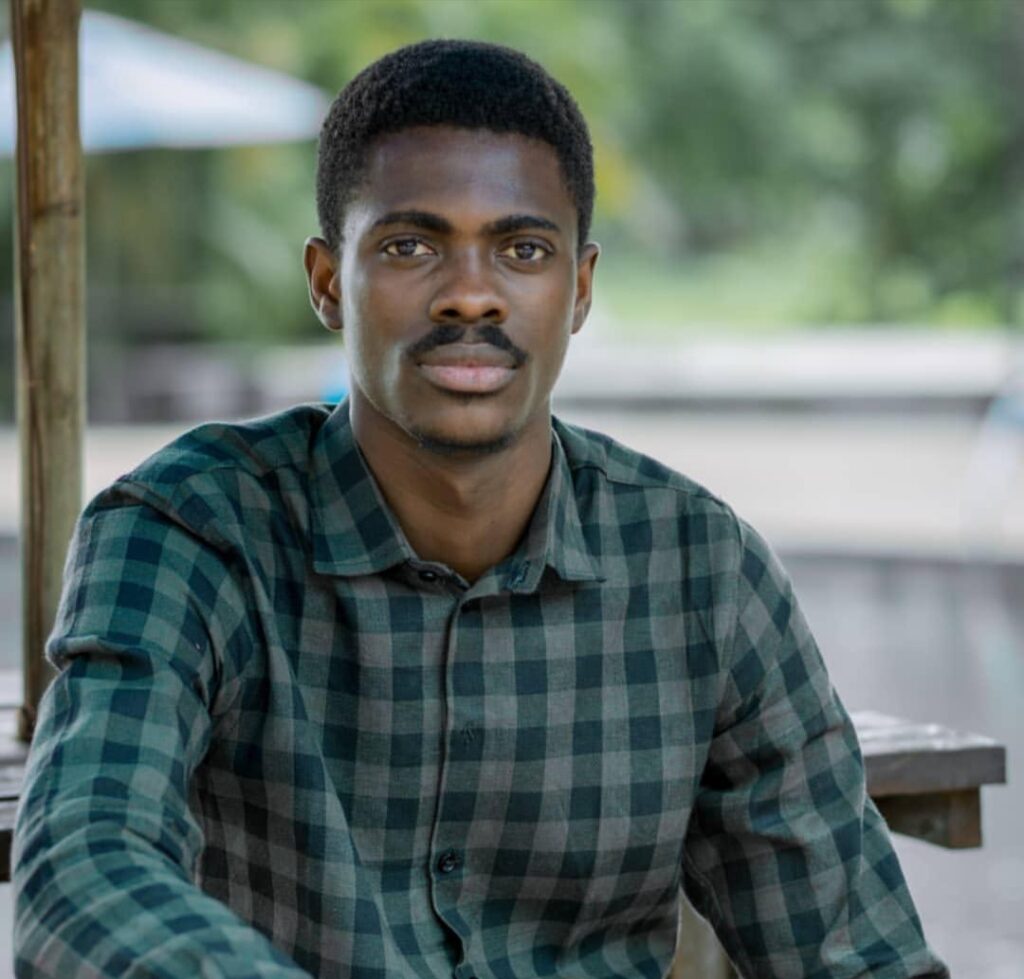King of Thieves is More Than a Step in the Right Direction
Just as I came out from the screening room where I just watched Femi Adebayo’s King of Thieves: Agesinkole, I opened my Twitter and the very first tweet I saw on my timeline was from Niyi Akinmolayan, gushing about how much the movie has made in the three days since it was released, but in many more ways than just the millions of naira it made in the box office, to paraphrase the famous Neil Armstrong quote, King of Thieves is “one small step for one man, but a huge step for an entire movie industry.” Of course, saying that it is a “small step” might be a disservice to the movie, with its star-studded cast and its large special effects budget. In the context of the potential that its reception has unlocked for Yoruba Language films in cinemas, the small step tag still applies. King of Thieves: Agesinkole is perhaps the first movie delivered almost entirely in Yoruba language (only Segun Arinze who plays the narrator who tells the story to a modern audience speaks in English) to be thus received at the cinema. In an industry where movies have not only been gatekept by location but also by language, Adebayo breaking such a huge barrier is an achievement that dwarfs whatever tens or hundreds of millions he will ultimately gross at the box office. The decision of the director of the movie to bring the three leading men, the three musketeers, the BBC (people who get the football reference are free to argue who is who in the comments) of Yoruba Nollywood together, Femi Adebayo who plays the titular Agesinkole the King of Thieves, Odunlade Adekola as Oba Adegbite, the King of Ajeromi whose rise to the throne starts up Agesinkole’s rampage of revenge and destruction, and Ibrahim Chatta as Oguntade, the reluctant hunter who is forced to face Agesinkole and bring an end to his reign of terror in Ajeromi. proved to be a masterstroke as each one of the three showed exactly why they deserved to be among the class of untouchables in the industry. Together and individually, they deliver an epic performance worthy of the movie’s genre. And like the Real Madrid team that would win the UEFA Champions League thrice in a row, once the leading men raised the bar to the stratosphere, the supporting cast, the likes of Toyin Abraham- Ajeyemi, Ibrahim Yekeen, Dele Odule, Lateef Adedimeji, and even the likes of Broda Shaggi and Mr. Macaroni whose roles are reduced to cameos in the final cut, had no choice but to raise their game to match as well. In fact, the acting was so good that I was willing to let slide Niyi Akinmolayan’s decision to smuggle in Lateef Adedimeji and Toyin Abraham- Ajeyemi, into every one of his movies whether they deserved to be there or not. Both were good in this one, even if Adedimeji’s role, in particular, was rather superfluous. And it is that acting masterclass that saves the movie because the movie’s story is pretty bog-standard it is so standard, that the very pleasant lady who sat beside me in the cinema, presumably a Yoruba Nollywood enthusiast, pointed out to me that Ibrahim “Itele” Yekeen who plays Agesinkole’s second in command probably won’t even need any acting script or direction to play his role, since the story is pretty much the exact kind of story he is famous for (I think It would have been criminal negligence for the filmmakers to not include him in it because he is the first face that the target audience associate with that kind of movie, even much more than Odunlade Adekola or Femi Adebayo himself). An innocent man is accused of a crime and unjustly killed, and then he acquires powers and returns to exact his revenge on the people who killed him. If you were expecting anything more than that, you will be disappointed. However, apart from the acting, the camera and the sound were also the high points of this movie. The sound was great, heightening the mood or turning it down as the story demanded. It certainly helped the audience get into the movie, the camera angles were great too, the establishing aerial shot that opens the epic portion of the movie where Agesinkole arrives on horseback with his men is particularly epic. The special effects were largely good too, even if some of the effects looked a bit fake, but as the saying goes “baby steps are better than nothing.” Back to the plot itself, sometimes the plot felt like the filmmaker knew the plot limitations and attempted to pad the runtime up which instead created plenty of fluff scenes and plot holes. I left the cinema room with a lot of questions. For example, why did the movie treat Queen Bonuola’s sleeping position as a mystery when it ended up being what every single member of the audience knew all along that it was? Even as Oguntade’s mother (Peju Ogunmola) confesses that the method she used to fortify her son for the climax fight was risky, was she waiting for Agesinkole to lay waste to the whole town before using it? What if Agesinkole had chosen to murder her during one of his previous raids? And about Agesinkole himself, was his motive for laying waste to the town of Ajeromi and using its townspeople as collateral damage just a search for a worthy challenger? Because why is it that the first time he meets someone remotely competent enough to take him on successfully (whom he still defeats anyway), he forgets his revenge and just leaves? If Oguntade had decided that he loved his reputation more than his wife (who was a pain in his ass anyway) Would Agesinkole have continued to murder the people of Ajeromi, since the whole process that led to the climax would not have happened? Also, why was Agesinkole suddenly sanitized as a harbinger of justice and the protector of innocent



